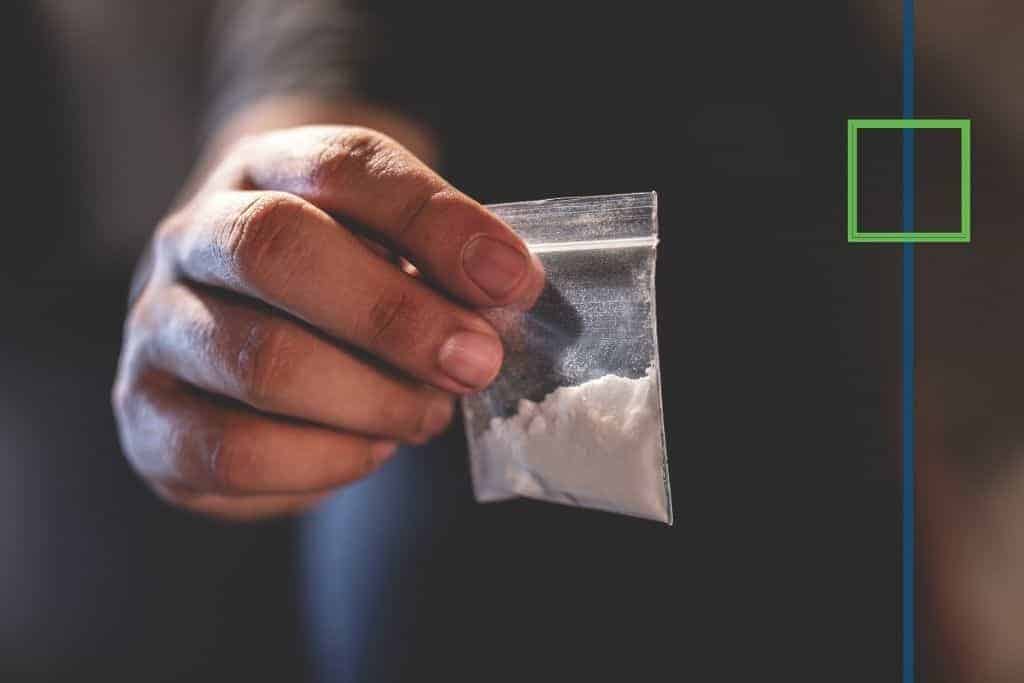What is Ritalin?
Ritalin. or Methylphenidate hydrochloride—the generic for Ritalin, is a stimulant prescribed for attention deficit hyperactivity disorder (ADHD) treatment and to manage symptoms of narcolepsy (sleep disorder), but it also has the potential for abuse — begging the question, “can you snort Ritalin?” It affects the parts of the brain and central nervous system (CNS) that control impulses and hyperactivity. Ritalin is one of the trade names for the drug known as methylphenidate. Other brand names can include Concerta, Methylin, and Metadate. Methylphenidate was first approved by the U.S. Food and Drug Administration in 1955 for treating what was then referred to as hyperactivity [1].
Ritalin is prone to abuse, just like other stimulants. In addition, its ability to improve concentration means some people use it to boost cognitive ability. Abusing Ritalin, such as by crushing and snorting it, is dangerous because it can lead to irregular heart rate, fever, heart failure, and seizures at high doses. Over time, crushing and snorting this drug can also result in severe cardiovascular issues, anger, and psychotic symptoms such as paranoia. If abruptly discontinued, it is associated with Ritalin withdrawal symptoms like fatigue, depression, and sleep disturbances. Snorting Ritalin can also lead to a more intensely realized high—a phenomenon that may increase the risk that a user will become addicted.


Get Your Life Back
Find Hope & Recovery. Get Safe Comfortable Detox, Addiction Rehab & Dual Diagnosis High-Quality Care.
Hotline(844) 597-1011What Is Cocaine?
Cocaine is a severely addictive stimulant drug made from the leaves of the coca plant. It increases the natural chemical messenger (dopamine) levels in brain circuits related to the control of movement and reward. Cocaine comes in a few different forms. The most common is a fine, white powder. It can also be made into a solid rock crystal. Today, cocaine is a Schedule II controlled substance, which means that it has a high potential for abuse but can be administered by a doctor for legitimate medical uses, such as local anesthesia for some ear, eye, and throat surgeries[2].
No matter how much cocaine is taken, it is dangerous. Some of the most common serious problems include heart attack and stroke. Addiction recovery professionals recommend facing cocaine addiction with a long-term treatment plan that promotes positive decision-making and overall health improvements that include learning coping skills.
Cocaine is a highly addictive stimulant drug used by 14-21 million people worldwide [3]. In 2018 there are 874,000 new cocaine users [4]. Since cocaine is combined or ‘cut’ with other chemicals, people have no idea if the dose will be weak or strong. These other chemicals may include fillers, such as paint chemicals, cornstarch, fentanyl, and its analogs, which are added purely to boost profits.
Ritalin Effects
According to the National Center for Biotechnology Information (NCBI) [4], insomnia and nervousness are the most commonly reported Ritalin effects in patients using methylphenidate (Ritalin). Other frequent Ritalin effects mainly involve the CNS (dizziness, headache, tics, restlessness/akathisia), gastrointestinal (nausea/vomiting, dry mouth, decreased appetite, weight loss, abdominal pain), and cardiovascular systems (tachycardia, and palpitations).
People who take this drug are more prone to become easily agitated, irritable, or depressed and go through mood swings/lability. Some may even develop blurry vision or decreased libido. Stroke and myocardial infarction also have been observed in adults. Due to the risk of such fatal side effects, it is advisable to avoid Ritalin in people with a structural cardiac abnormality, cardiomyopathy, or arrhythmias.
Ritalin Effects on the Brain
Investigators funded by the National Institute on Drug Abuse have shown that the medication methylphenidate (Ritalin), can cause physical changes in neurons in reward regions of mouse brains—in some cases, these Ritalin effects overlapped with those of cocaine. Both methylphenidate (Ritalin) and cocaine are in the class of drugs known as psychostimulants.
“Studies to date suggest that prescribed use of Ritalin in patients with ADHD does not increase their risk for subsequent addiction. However non-medical use of this drug and other stimulant medications, can lead to addiction as well as a variety of other health consequences,” said NIDA Director Dr. Nora Volkow. ” [5] “Methylphenidate, which is thought to be a fairly innocuous compound, can have structural and biochemical effects in some regions of the brain that can be even greater than those of cocaine,” stated Dr.Yong Kim, lead author of the study. “
Get Help. Get Better. Get Your Life Back.
Searching for Accredited Drug and Alcohol Rehab Centers Near You?
Even if you have failed previously and relapsed, or are in the middle of a difficult crisis, we stand ready to support you. Our trusted behavioral health specialists will not give up on you. When you feel ready or just want someone to speak to about therapy alternatives to change your life call us. Even if we cannot assist you, we will lead you to wherever you can get support. There is no obligation. Call our hotline today.
(844) 597-1011
Cocaine Effects
The effects of cocaine use appear almost immediately after a single dose and are typically short-lived, lasting only a few minutes to a couple of hours. Small amounts of cocaine usually make the user feel euphoric, energetic, talkative, mentally alert, and hypersensitive to sight, sound, and touch. The drug can also temporarily decrease the need for food and sleep. Some users find that cocaine helps them perform simple physical and intellectual tasks more quickly, although others experience the opposite effect.
The intense high that the user experiences at first will very quickly wear off, leaving the user feeling an urge to use the drug again to prevent the vicious crash and burn cycle that is so common with cocaine abuse. Cocaine effects are powerful, but because they are so short, tolerance to the drug can develop quickly, causing the user to be at an increased risk of becoming addicted rather quickly as well.
The duration of cocaine’s euphoric effects depends on the route of administration. The faster the drug is absorbed, the more intense the resulting high, and the shorter its duration. Snorting cocaine produces a relatively slow onset of the high, but it may last from 15 to 30 minutes. In contrast, the high from smoking is more immediate but may last only 5 to 10 minutes.
Short Term Effects of Cocaine Use
After just a single dose of cocaine, the user will experience the short-term effects of the drug. These effects may only stay for an hour or so, but they can still cause severe damage to the person, especially if an allergic reaction, toxicity, or overdose should happen. When cocaine is used in a moderate amount, the short-term effects may include:
- Increased energy
- Euphoric sensation
- Increased desire to talk
- Restlessness
- Heightened anxiety
- Appetite suppression
- Increased alertness
Long Term Effects of Cocaine Use
With repeated use of cocaine, the brain starts to adapt so that the reward pathway becomes less sensitive to natural reinforcers. At the same time, circuits involved in stress become increasingly sensitive, leading to increased displeasure and negative moods when not taking the drug, which are signs of withdrawal. These combined effects make the user more likely to focus on seeking the drug instead of relationships, food, or other natural rewards.
With regular use of cocaine, tolerance may develop so that higher doses, more frequent use of cocaine, or both are needed to produce the same level of pleasure and relief from withdrawal experienced initially. At the same time, users can also develop sensitization, in which less cocaine is needed to produce anxiety, convulsions, or other toxic effects. Tolerance to cocaine reward and sensitization to its toxicity can increase the risk of a cocaine overdose in a regular user.
Long term effects of cocaine abuse include:
- Damage to the nose
- Loss of sense of smell
- Trouble swallowing
- Frequent runny nose or nose bleeds
- Sinus infection or irritation of the sinuses
- Hoarseness or scratchy voice
- Weight loss and malnourishment
- Inflamed lungs, lung damage, or lung disease
- Bowel problems and other gastrointestinal dysfunctions
- Diseases such as HIV or Hepatitis result from using shared needles or shared straws
Psychological Effects of Cocaine
Cocaine effects are not limited to the stimulant effects felt within the body. A wide range of psychological effects is also present when a user abuses cocaine. Some of the more common psychological effects of cocaine use include:
- Anxiety
- Paranoia
- Hallucinations that are auditory or visual or both
- Erratic behavior or thoughts
- Irritability
- Panic
When a large amount of cocaine is abused, the user may experience these psychological effects for a very long time, even long after the person is no longer using the drug.
First-class Facilities & Amenities
World-class High-Quality Addiction & Mental Health Rehabilitation Treatment
Rehab Centers TourRenowned Addiction Centers. Serene Private Facilities. Inpatient rehab programs vary.
Addiction Helpline(844) 597-1011Proven recovery success experience, backed by a Team w/ History of:
15+
Years of Unified Experience
100s
5-Star Reviews Across Our Centers
10K
Recovery Success Stories Across Our Network
- Low Patient to Therapist Ratio
- Onsite Medical Detox Center
- Comprehensive Dual-Diagnosis Treatment
- Complimentary Family & Alumni Programs
- Coaching, Recovery & Personal Development Events
Are Methylphenidate and Cocaine Alike?
Drugs that are classified in the same category (psychostimulants or central nervous system stimulants) share numerous similarities, or they would not be classified in the same general category. On a very basic level, all psychostimulants affect the functioning of the nervous system, such that they speed up its functioning.
The general effects of these drugs include boosting awareness, increasing attention, lessening appetite, amplifying energy, and reducing the need for sleep. Thus, the simple answer to the question is that the drugs are alike in some respects. However, further elaboration is needed before assuming that individuals who are taking methylphenidate (Ritalin) for ADHD treatment are taking cocaine.

Side effects of the drugs are similar when the drugs are taken in similar quantities and through similar methods of administration. Abuse of any drug increases the potential for side effects, including effects that would normally be rare when the drug is used in a manner consistent with its prescribed use.
For instance, few people taking medicinal cocaine experience hallucinations and delusions, whereas hallucinations and delusions as a result of chronic cocaine abuse are not uncommon. Likewise, individuals who snort large amounts of Methylphenidate (Ritalin) are more prone to develop hallucinations and paranoia. However, children and adults using methylphenidate for the treatment of ADHD and according to its prescribed purposes rarely have these issues.
Is Methylphenidate Safer than Cocaine?
It appears that the effects of cocaine are experienced more rapidly in the brain than the effects of methylphenidate (Ritalin), although snorting methylphenidate in the manner that cocaine is snorted increases its onset of action. Despite the method of administration, methylphenidate appears to be eliminated from the system a bit more slowly than cocaine, making it less likely to produce physical dependence than cocaine.
The level of euphoria that is obtained with medicinal doses of methylphenidate is negligible (comparable to the use of coffee). When abused in larger amounts and in a manner similar to cocaine, the drug will produce similar effects, which is why methylphenidate is a controlled substance.
Both drugs can be abused. When methylphenidate (Ritalin) is abused. Can you snort Ritalin? Taking Ritalin for recreation poses risks, and snorting it is never safe. It may result in severe cardiovascular issues and paranoia. The pills are often crushed and snorted or mixed with water and injected. Cocaine is often snorted, smoked, or injected.
Both cocaine and methylphenidate (Ritalin) can produce significant tolerance, meaning that after taking the drug for a while, a person’s system will adjust to the effects of the drug. They will need more of the drug to get the same effects that they previously achieved with smaller doses.
Cocaine and Ritalin
Cocaine and Ritalin are both stimulants, although cocaine is illegal and Ritalin (methylphenidate) is a prescription-only medication. They work in similar ways and can be very dangerous when taken at the same time. When used together, these two substances can have dangerous results and possibly lead to overdose or death.
Individuals most commonly mix cocaine and Ritalin together to increase the intensity and length of the high. Someone combining these two drugs is most likely not aware of the risks involved and is simply looking for a more intense experience.
Immediate risks of mixing cocaine and Ritalin include:
- Heart attack
- Shakiness
- Stroke
- Hallucinations
- Seizure
- Panic attacks
- Erratic behavior
Cocaine and Ritalin are dangerous whenever they are combined, but can also have long-term effects as well. The long-term risks are both physical and mental.
Long-term risks of mixing cocaine and Ritalin include:
- Increased blood pressure and heart rate
- Weight loss
- Increased risk of heart attack and stroke
- Poor circulation
- Social issues
- Substance use disorders
- Depressive and anxiety disorders
World-class, Accredited, 5-Star Reviewed, Effective Addiction & Mental Health Programs. Complete Behavioral Health Inpatient Rehab, Detox plus Co-occuring Disorders Therapy.
CALL(844) 597-1011End the Addiction Pain. End the Emotional Rollercoaster. Get Your Life Back. Start Drug, Alcohol & Dual Diagnosis Mental Health Treatment Now. Get Free No-obligation Guidance by Substance Abuse Specialists Who Understand Addiction & Mental Health Recovery & Know How to Help.
Addiction Treatment
There is a strong link between mental health and substance abuse. Individuals who struggle with mood disorders like depression, ADHD, and anxiety are more susceptible to developing an addiction to drugs or alcohol, often to self-medicate symptoms of their underlying mental health condition. These co-occurring disorders can make each other worse without proper treatment. If you’re asking the question, “Ritalin vs Cocaine, which is safer?” , then you should also be aware of the risks involved in using both drugs, either separately, or combined.
How long do Ritalin withdrawal symptoms last? If you are experiencing Ritalin withdrawal, it’s crucial to first get an accurate assessment of all the symptoms. When the symptoms have been evaluated by a mental health professional, it may be determined that another form of mental condition is present and needs a particular type of treatment. Very often, some combination of psychotherapy, medication, and/or lifestyle changes are effective for coping with functional.
Medically-Assisted Detox
Detox is often considered the first stage of treatment. It will help you navigate the complicated process of Ritalin withdrawal, but it doesn’t address patterns of thought and behavior that contribute to drug use. Various treatment approaches and settings can help provide the ongoing support necessary to maintain long-term sobriety after you complete detox.
Cravings are very common during detox and can be challenging to overcome. This often leads to relapse. Constant medical care provided during inpatient treatment helps prevent relapse. Clinicians can provide necessary medication and medical expertise to lessen cravings and the effects of Ritalin withdrawals.
Psychotherapy
Several different modalities of psychotherapy have been used in the treatment of mental health disorders along with addiction, including:
- Cognitive Behavioral Therapy (CBT) – is an effective treatment that involves making changes in both the patterns of negative thoughts and the behavioral routines which are affecting the daily life of the depressed person for various forms of depression.
- Dialectical Behavioral Therapy – is a comprehensive mental health and substance abuse treatment program whose ultimate goal is to aid patients in their efforts to build a life worth living. The main goal of DBT is to help a person develop what is referred to as a “clear mind.”
- Person-Centered Therapy – is a strategy that allows and encourages clients to understand and resolve their concerns in a safe, supportive environment.
- Solution Focused Therapy – is an approach interested in solutions that can be quickly implemented with a simple first step leading to further positive consequences.
Dual Diagnosis Treatment
Prescription drug abuse and mental health disorders often co-occur. In many cases, traumatic experiences can result in a mental health disorder and substance abuse. Dual diagnosis rehabilitation treats both of these issues together. The best approach for the treatment of dual diagnosis is an integrated system. In this strategy, both the substance abuse problem and the mental disorder are treated simultaneously. Regardless of which diagnosis (mental health or substance abuse problem) came first, long-term recovery will depend largely on the treatment for both disorders done by the same team or provider.
Medication-Assisted Treatments
Medication-Assisted Treatments (MAT) for alcohol use disorder and mental health disorders are commonly used in conjunction with one another. This includes the use of medications and other medical procedures. During your rehab, the staff from your treatment facility will help you identify what caused your addiction and teach you skills that will help you change your behavior patterns and challenge the negative thoughts that led to your addiction. Sometimes, the pressures and problems in your life lead you to rely on substances to help you forget about them momentarily.
If you or a loved one are struggling with long-term drug abuse and a co-occurring mental health condition such as depression, contact one of our helpful treatment specialists today. We Level Up can provide information on dual diagnosis and detox programs that may fit your specific needs.

Experience Transformative Recovery at We Level Up Treatment Centers.
See our authentic success stories. Get inspired. Get the help you deserve.
Start a New Life
Begin with a free call to an addiction & behavioral health treatment advisor. Learn more about our dual-diagnosis programs. The We Level Up Treatment Center Network delivers recovery programs that vary by each treatment facility. Call to learn more.
- Personalized Care
- Caring Accountable Staff
- World-class Amenities
- Licensed & Accredited
- Renowned w/ 100s 5-Star Reviews
We’ll Call You
Sources:
[1] NIDA – https://www.drugabuse.gov/publications/research-reports/cocaine/what-scope-cocaine-use-in-united-states
[2] NIDA – https://www.drugabuse.gov/drug-topics/trends-statistics/overdose-death-rates
[3] NCBI – https://www.ncbi.nlm.nih.gov/books/NBK482451/
[4] NIDA – https://www.nih.gov/news-events/news-releases/nida-study-shows-methylphenidate-ritalin-causes-neuronal-changes-brain-reward-areas


